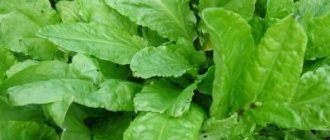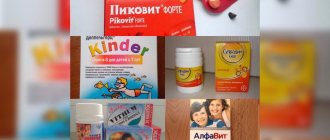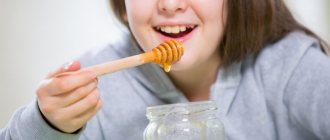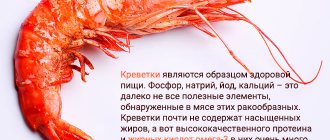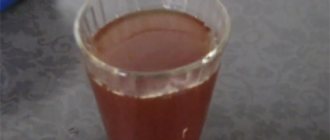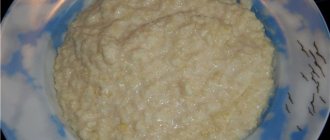Immunity is a system of the human body that is capable of destroying foreign substances and thereby maintaining the constancy of the internal environment. The proper functioning of the immune system is especially important for a growing child’s body, because the state of the immune system determines how often the child will get sick and whether he will develop complications after illness.
In recent decades, one of the most important problems in pediatrics has been the increase in diseases associated with disorders of the immune system. Frequent relapses of viral infections, chronic inflammatory diseases of the bronchopulmonary system, urogenital tract, purulent-septic surgical diseases and many other ailments developing in children are often caused by weak immunity.
When should you give your child immunomodulators?
In a child with strong immune defense, immunocompetent cells are produced both in response to the introduction of viruses, microbes and other infectious agents from the outside, and in response to the formation of their own cells, which are modified by viruses and can cause harm to the body. The immune system performs this function with the help of innate and acquired (adaptive) immunity factors. If the functional activity of the cells of the immune system is disrupted, the child is concerned about acquired or congenital immunodeficiencies, as well as allergic and autoimmune diseases. They are treated using a complex of immunotherapy methods. One of these methods is the use of immunotropic drugs. When prescribing medications to a child, the doctor must take into account possible side effects.
Types of drugs for immunity
Immunotropic drugs are drugs whose therapeutic effect is associated with a predominant (or selective, i.e. selective) effect on the immune system.
There are three main groups of immunotropic drugs that are used in the treatment of children:
- immunomodulators;
- immunostimulants;
- immunosuppressants.
Immunomodulators are capable of restoring the functions of the immune system, and their help depends on the initial state of the patient’s immunity: they reduce elevated and increase decreased immunity levels.
Immunostimulants primarily strengthen the immune system, bringing reduced levels to normal values.
Immunosuppressants suppress the immune response, which is sometimes necessary in the treatment of autoimmune diseases - a group of diseases in which the body's organs and tissues are destroyed under the influence of the body's own immune system.
How to boost a teenager's immunity?
26.03.2021
Raising teenagers is a separate, difficult period in the life of any parent. Teenagers rarely listen to how they should live and eat properly. But nevertheless, parents still remain responsible for their child. And, of course, they want to make him sick less. After all, teenagers very often have weakened immunity . How to improve immunity in such a turbulent time for the family? This article will talk about this.
Nutrition
Teenagers grow up very quickly. Their nutritional needs are similar to those of pregnant women. But the difference is that many teenagers, unlike pregnant women, have a clear aversion to many healthy foods. The immune system is greatly affected by lack of nutrients. As a result, teenagers may experience skin rashes, frequent colds and bad mood. Before helping him, you need to figure out which vitamins and minerals are missing in the growing body. After all, an excess of certain substances is sometimes even worse than their lack. During this period of life, the human body most often lacks zinc. This is associated with puberty and this element plays a very important role in this process.
Teenagers also usually lack calcium and vitamin D. These elements are necessary for bones , skin, hair and nails. Preventing calcium and vitamin D deficiency in the body reduces the risk of fractures.
It is worth reducing the amount of various chemicals in a teenager’s diet. For example, chips, salty crackers and poor quality sweets. Of course, the child will not like it, but talking about his health, so parents need to be persistent and firm.
Fresh air and sports
In the current age of high technology, many parents are faced with the problem of a lack of fresh air among teenagers. Many of them prefer to spend time on a computer or smartphone and go out for walks less and less. But oxygen is necessary for a growing organism. If there is a deficiency of it, then immunity drops significantly and chronic diseases worsen in children. This is the reason why children in megacities, where the air is heavily polluted, get sick more often than children living in villages. Physical activity is also very important during adolescence. You need to introduce your teenager to some kind of sport. You can try going hiking with the whole family. Thus, providing the child with fresh air, communication with parents, and sports exercises.
Less stress
The life of teenagers is full of stress and anxiety. Here comes first love, stress before exams at school, and quarrels with parents. But stress, even in an adult, weakens the immune system , and even more so in a fragile body. Therefore, it is worth reducing the negative impact on the child. Sometimes it helps to just have a conversation. Explain that you don’t need to take everything to heart and worry too much. But sometimes you need to take a course of sedatives.
Teenagers are very individual. Everyone needs their own approach. But when the health of your child is at stake, you should make every effort and do everything possible to strengthen the immune system .
Published in Immunology Premium Clinic
List of immunomodulator drugs for children
Immunomodulators of microbial origin
Immunomodulators of microbial origin include lysates (cleavage products) and ribosomes (“factories” for the production of proteins) of bacteria related mainly to pathogens of respiratory infections: Klebsiella pneumoniae, Streptococcus pneumoniae, Streptococcus pyogenes, Haemophilus influezae and others. These drugs have a dual purpose: specific (vaccinating) and nonspecific (immunostimulating). Under the influence of the substances contained in them, intracellular death of bacteria that managed to penetrate the body occurs, and immune defense is also stimulated.
Thymic drugs
The impetus for their creation was the discovery of peptide hormones of the thymus, an endocrine gland in which maturation and immunological “training” of immune system cells occurs. When taking these drugs, the immune system is activated, due to which viruses and bacteria are powerless, and the disease recedes.
Cytokine preparations
Cytokines regulate the development of the immune response. They serve as the basis for the creation of a large number of both natural and recombinant immunomodulatory drugs. These drugs act on cells involved in inflammation and regeneration processes - restoration of the body.
Immunomodulators of plant origin
Currently, preparations of natural plant origin, in particular, various derivatives of Echinacea purpurea, are widely used to stimulate the immune system. Such drugs increase nonspecific factors of the body's defense in uncomplicated acute infectious diseases and in cases of predisposition to frequent colds.
Interferons and interferon inducers
Medicines with pronounced immunomodulatory properties undoubtedly include interferons and interferon inducers. Interferon inducer is the general name for agents of various natures that, upon contact with tissues and cells, cause the formation of interferon in them. These drugs should be distinguished from the group of other immunomodulators, since in addition to the immunomodulatory effect they also have a pronounced antiviral effect.
The following conclusions can be drawn:
- In case of ARVI, a child can be given immunomodulators if necessary
In children, the antiviral defense system is significantly lower than in adults. This is primarily determined by low con (responsible for the antiviral effect) of interferon. “Children’s” interferon, of which a child has quite a lot, is more responsible for the normal development of organs and systems. This explains the predisposition of the child’s body to frequent ARVI. Antiviral drugs can compensate for this feature. Particular attention in the treatment of children and prevention should be paid to antiviral drugs, which cover the entire etiological spectrum of acute respiratory infections, including influenza.
- It is better to give the child broad-spectrum antiviral drugs
The obvious advantages of interferon over other antiviral drugs is their high non-selective antiviral activity. This means that such drugs are able to fight all types of ARVI. One of these drugs is the antiviral drug VIFERON.
- Interferon alfa-2b: dual action against colds and flu
Alpha-2b interferon, which is part of the drug VIFERON, is created on the basis of modern technologies, has antiviral properties (blocks virus reproduction) and has a pronounced immunomodulatory effect (restores immunity). It has been established that when using the drug there are no side effects that occur with parenteral (injection) administration of interferon preparations, and antibodies that neutralize the antiviral activity of interferon alfa-2b are not formed. VIFERON preparations were developed as a result of fundamental research in the field of immunology, which showed that in the presence of antioxidants (vitamins C, E and others), the antiviral effect of interferon is enhanced. Thanks to its dual action (antiviral and immunomodulatory), the drug not only fights the symptoms of the disease (cough, fever, intoxication), but also allows you to get sick less often in the future.1
- The drug VIFERON can even be used to treat pregnant women and newborns
To prevent undesirable consequences of acute respiratory viral infections in a child, do not forget, in consultation with your doctor, to use the antiviral drug VIFERON Suppositories (suppositories), which can be used to treat children from the first days of life and expectant mothers from the 14th week of pregnancy. And VIFERON Ointment and Gel can be used by pregnant women from the 1st week.
Author of the article
Belyaev Dmitry Alexandrovich
General doctor
- Nesterova I.V. “Interferon drugs in clinical practice: when and how,” “Attending Physician,” September 2021.
Loading...
Take other surveys
Children's immunomodulators and immunostimulants
Parents often go to the doctor with complaints that their child gets sick very often, and they do not know how to strengthen the immune system. It seems like they are strengthening him, he often walks in the fresh air, plays sports, but still gets sick. In this case, you may need to use drugs that help strengthen the baby’s immunity. These include immunostimulants and immunomodulators for children.
The effects of these drugs on the body vary.
Immunostimulants for children are drugs that help increase the production of immune cells.
Immunomodulators for children are drugs that change the functioning of the immune system.
The use of these drugs helps reduce the time it takes the child’s body to fight viruses or bacteria. However, a doctor should select medications, for example, immunomodulators for children over 3 years old, in order to get the maximum effect from their action and not cause harm to the child (the baby’s immune system is not yet mature, its development is just beginning and continues until the age of 14).
Immunostimulants and immunomodulators. List of drugs for children
The use of immunomodulators and immunostimulants is justified only if the child has a weak immune system, and hardening, proper nutrition, etc. do not help him strengthen the immune system. Parents should not give these drugs to their child on their own. The lists of drugs for children and adults differ, although the classification of immunostimulants and immunomodulators is common.
Types and classification of immunomodulators
Interferons. Drugs that stop the development of infection (used in the treatment of acute respiratory viral infections). Such drugs include Viferon, Gripferon.
Herbal immunomodulators (intended for the prevention of seasonal influenza). Such immunomodulators include drugs based on ginseng, lemongrass, as well as drugs such as Immunal, Echinacea.
Inducers of endogenous interferons (these drugs help increase the body's production of its own interferons). Used to treat viral infections. Such drugs include arbidol, amiksin, anaferon.
Immunomodulators of natural, plant origin (help increase both local and general immunity of the child). More often used in the treatment of chronic diseases of the bronchopulmonary system or ENT organs. Such drugs include imudon, broncho-vaxon, ribomunil.
Types and classification of immunostimulants
Natural immunostimulants. These include Echinacea purpurea, ginseng, Eleutherococcus, and Rhodiola rosea. Laboratory synthesized immunostimulants. These include ronkoleynik, derinat.
Contraindications
Immunomodulators and immunostimulants, even natural ones, are contraindicated for children with autoimmune diseases.
At the same time, parents should always remember that a healthy lifestyle best strengthens the child’s immunity.
Melnichenko L.A., chief physician of the Markushka children's clinic.
